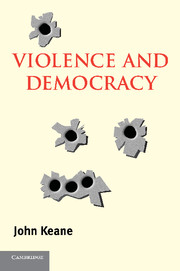3 - Civilisation
Published online by Cambridge University Press: 24 May 2010
Summary
Civility [from civil] … Freedom from barbarity; the state of being civilised … Politeness; complaisance; elegance of Behaviour … Rule of decency; practice of politeness …
Samuel Johnson (1786)REDISCOVERING CIVIL SOCIETY
Like all terms in our language, violence has a relational quality. It obviously takes on its meanings and assumes significance for us insofar as it is enmeshed within a wider web of other terms and concepts that stand in relationships of similarity and difference. The old contrast between violence and a ‘civil’ or ‘civilised’ society is a case in point. Seen against the backdrop of a long century of organised cruelty and the new triangle of violence in which our world is now living, it is little wonder that there has been, in recent years, a remarkable renaissance of interest in the idea of civil society – even expressed hopes for the formation of a global civil society. Orwell did not foresee this innovation, and it is interesting to speculate whether his well-known pessimism about the future might have been tempered by the normative ideal of a civil society, to which his political writings are certainly close. Carefully interpreted, the concept of civil society has a close affinity with the issues of violence and democracy.
- Type
- Chapter
- Information
- Violence and Democracy , pp. 42 - 53Publisher: Cambridge University PressPrint publication year: 2004



